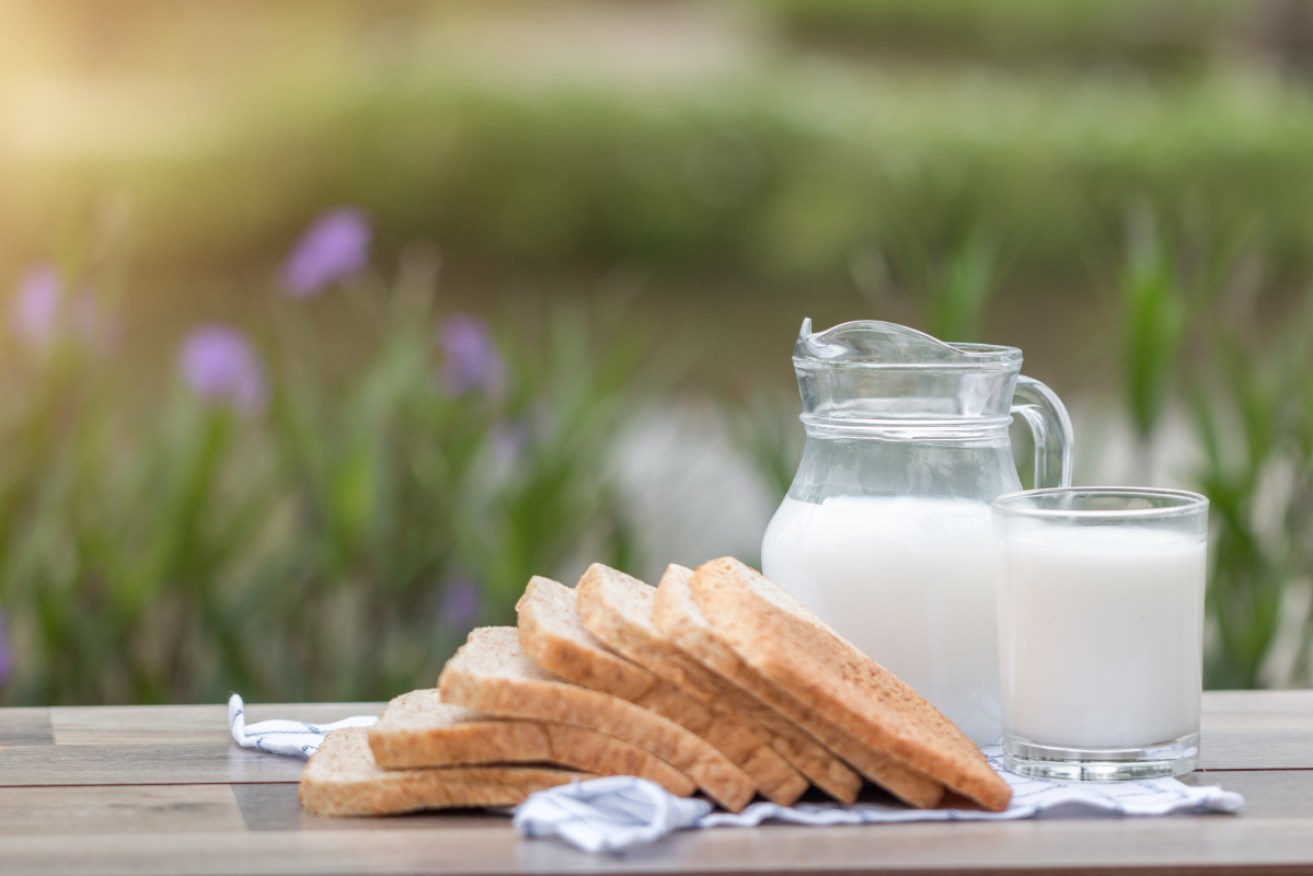Bread and milk need a vitamin-D boost to help fight COVID-19: UK scientists


There is some evidence that fortifying bread and milk improves vitamin D serum levels. Still, deficiencies abound. Photo: Getty
A group of scientists in the UK is pushing for the government to fortify milk and bread with vitamin D as part of the national COVID-19 response. The Brits have a red hot crisis in play, with a national health service heading toward collapse.
As we reported last week, the UK – which hasn’t managed well social distancing and other mandated measures – is plagued with 100,000 new cases a day when asymptomatic cases are factored in.
In a separate report, we wrote how the UK Health Secretary Matt Hancock was recommending that Britons take vitamin D supplements with the hope of reducing serious illness – and the attendant stress on the hospital system.
The British aren’t so keen on supplements
The problem is that about half of all Britons have a vitamin D deficiency and have resisted public health advice on supplements for years.
Gareth Davies, an independent medical researcher, in a widely-shared report from The Guardian, says government intervention is required – and that foods such as bread and milk should be fortified with the vitamin.
However, as The Guardian noted, “Public Health England (PHE) and the Department of Health and Social Care have rejected calls over the past 10 years to fortify foods such as milk, bread and orange juice, which is the practice in Finland, Sweden, Australia, the US and Canada.”
According to Australian government website healthdirect.gov.au: “In Australia, vitamin D is added to margarine. Some milk, soy drinks, breads and cereals may also be fortified with vitamin D.”
To what extent fortification has helped beef up our vitamin D intake isn’t clear.
But as healthdirect points out, nearly one in four Australians has a vitamin D deficiency.
So what’s the evidence?
Dr Davies is an independent researcher, apparently unaffiliated with a university or commercial clinic. He is co-author of a new paper that isn’t yet peer-reviewed: ‘Evidence Supports a Causal Role for Vitamin D Status in Global COVID-19 Outcomes.’
Other research papers are more modest, citing links and associations that suggest vitamin D could be useful in reducing the serious risks of COVID-19.
The most recent study to get people excited, as we reported last week, was based at the Hospital Universitario Marqués de Valdecilla, in Spain.
There 216 COVID-19 patients had their vitamin D levels measured. More than 80 per cent were found to have a vitamin D deficiency.
On average, men had lower vitamin D levels than women.
The doctors found that the patients with lower vitamin D levels also had raised serum levels of inflammatory markers such as ferritin and D-dimer.
Inflammation being the destructive hallmark of COVID-19, manifesting itself from the tip of the toes, to the lining of the blood vessels, the lungs and deep inside the brain.
Study co-author Dr José L. Hernández, of the University of Cantabria, observed: “Vitamin D is a hormone the kidneys produce that controls blood calcium concentration and impacts the immune system.
“Vitamin D deficiency has been linked to a variety of health concerns, although research is still under way into why the hormone impacts other systems of the body. Many studies point to the beneficial effect of vitamin D on the immune system, especially regarding protection against infections.”
He concludes: “Vitamin D treatment should be recommended in COVID-19 patients with low levels of vitamin D circulating in the blood since this approach might have beneficial effects in both the musculoskeletal and the immune system.”
The overall conclusion, in the researcher and medical community, is that a supplement might be helpful. And it certainly won’t do any harm.








